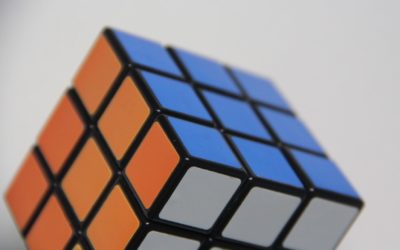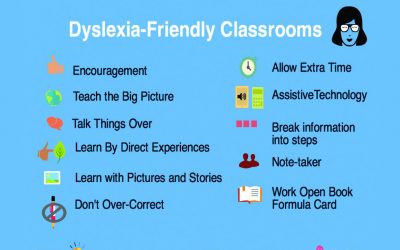These are strange times and even if you’re not accustomed to helping with homework (including different types of homework), it may help a lot if you can help. Even pre-pandemic, when parents were surveyed about their helping with homework and trouble lending help, about 50% said they had difficulty… so you’re not alone. There are healthy debates about whether you as a parent should help with homework…and that doesn’t even consider whether a child might be dyslexic, dysgraphic, or dyscalculic, or all three. Helping with homework is not a good idea if the student doesn’t learn how to do the work. Now if a student is drowning, and no one is around to help, then a little help might not seem to be a terrible […]
Math Strategies Without Anxiety with Stanford Prof Jo Boaler
If you anticipate working with a student on math this coming year, what approach will you take? Dr. Jo Boaler has tips that can help create a positive atmosphere for learning. https://vimeo.com/163871454 To read the entire handout...
Discrepancies in Math [Premium]
“For as long as I can remember, numbers have not been my friend. Words are easy as there can be only so many permutations of letters to make sense. Words do not suddenly divide, fractionalize, have remainders or turn into complete gibberish because if they do, they are gibberish. Even treating numbers like words doesn’t work because they make even less sense. Of course numbers have sequences and patterns but I can’t see them. Numbers are slippery.” – Jess Blackburn Although it’s been estimated that 40% of dyslexic individuals are also dyscalculic, dyscalculia is rarely formally identified in schools. As neuroscience studies have uncovered more differences in mathematical processing, the problem of identification has not become simpler. But although it appears that there […]
Best Apps for Subject Knowledge [Premium]
Because of the work of reading dense text and the fact that skimming can be difficult (if not impossible) for students, reading and re-reading alone are often not the most efficient ways for students to study for exams or file information into their long-term memories. FLASHCARD APPS Many students know that flashcard apps work because they allow you to review key information without wading through a sea of text. The best apps allow you to review only the cards that you’re unsure of, and apps either come with common textbooks pre-loaded or allow you to upload PowerPoints, PDFs, word documents with information with a conversion into cards. You don’t have to write your own cards! Some students may even find that […]
Hands-on Math and Games with Ronit Bird [Premium]
Recently, I discovered the math activities of Ronit Bird. Ronit Bird is the author of several books about Dyscalculia. She has helpful tips for parents and teachers about concrete manipulatives and building up a sense of number through activities more than worksheets. I confess, I wish I had had this more when I was a kid. The tricky thing about math and activities even if you’re home schooling or home-enriching is that students who are weak in an area will often not want to do it, even if it’s something that would be beneficial for them to do. In our family, we had one child who was very, very good at all types of speed-based computer games, and another who was decidedly not good […]
The Double Whammy: Dyscalculia and Dysgraphia [Premium]
What happens when a student has both dyscalculia and dysgraphia? Be prepared for an educational path that has a timing of its own. Dysgraphia often accompanies dyslexia, but dyscalculia too. If you or your student has two or three out of these 3 “d’s” be prepared for a challenging course and a need for individualization for many years. The most typical presentation for dyscalculia relates to students who have trouble mastering the sequence of numbers and recall of basic math facts. When dysgraphia gets added to the mix, you can imagine how it may swamp working memory, causing students to lose track when they work through math problems. In a very real sense having both dyscalculia and dysgraphia also robs students of being able to […]
Algebra: What Students See and What Mathematicians See [Premium]
Ben Orlin is the author of Math with Bad Drawings and Change is the only Constant: The Wisdom of Calculus in a Madcap World. Besides have a good sense of humor, Ben is good at recognizing the differences in the way students and mathematicians see math problems. Take for example, the math problem, What is 7 x 11 x 13. What goes through your mind when you see a problem like that? I reach for my calculator, or might try 7 x 11 first, then look for a pen a paper, but what Ben suggests is that mathematicians imagine this. The following examples Ben shared about Algebra had me laughing aloud: The mathematician’s simplification involves recognizing a pattern. But […]
Reversing COVID Slide In MATH
]"Early testing data from this fall seem to bear out that the pandemic has hit students harder in math than reading." With increasing numbers of the population getting vaccinated, there's hope for more normalcy, but chances are with all of the disruptions and stress,...
Typing for Students with Dyslexia and/or Dysgraphia
Typing is one of those tasks that every dyslexic person should master, but some students have difficulty fitting it into their already busy stressed-filled days. Some parents sign up their middle or early high school students for courses over the summer, but as almost...
Reversals and How to Help [Premium]
“The ability to recognize objects from various view-points has advantages in perceiving one’s environment, allowing one to identify a potential threat from many different views…(however) this trait of the object recognition system is disadvantageous for reading….” Blackburne et al., 2014 MIT When neuroscientists used neurophysiological techniques to study brain-based correlates of letter reversals, they were surprised to find how slowly children’s brains matured into the final adult pattern. Even when children were no longer writing letters backwards, their brains hadn’t matured to final “adult” pattern. Most researchers working in the area of reversals believe the letter reversal issue is related to how to recognize objects from different perspectives. We can recognize our friend if we’re standing right in front of them, to the side, at […]
PUTTING A NAME ON IT: Dyslexia, Dysgraphia, and Dyscalculia
The school year begins and then there's a lull. The first days of excitement and change are past and now teachers are trying to figure out their students and students are trying to figure out their teachers. Now is a good time for students to talk to their teachers...
Unleash Dyslexic Writing with Dr. Nicole Swedberg [Premium]
In step-by-step fashion, learn how to unleash the dyslexic writing talent of students through Dr. Nicole Swedberg’s idea of Mini-Writes. In her talk, Dr. Swedberg talks about short writing assignments can help students master small achievable goals. She describes how she can take a student through the writing process in 1-3 sessions. Some strategies include using wordless picture books, a word bank, and afterwards a routine involving spellcheck and finally use of text-to-speech for each sentence. Other topics include strategies for overcoming a report meltdown and strategies for note taking using assistive technology. Dr. Nicole Swedberg has generously donated this 20-minute webinar on Teaching Writing to LD Kids as a fundraiser to support the programs here at Dyslexic Advantage and we are very grateful.

![Helping With Homework If You’re Not A Wiz Yourself [Premium]](https://www.dyslexicadvantage.org/wp-content/uploads/2021/09/Help-with-homework-2-400x250.jpg)

![Discrepancies in Math [Premium]](https://www.dyslexicadvantage.org/wp-content/uploads/2021/08/Discrepancies-in-Math-5-400x250.png)
![Best Apps for Subject Knowledge [Premium]](https://www.dyslexicadvantage.org/wp-content/uploads/2021/07/Subject-Knowledge-0-scaled-e1626619775646-400x250.jpg)
![Hands-on Math and Games with Ronit Bird [Premium]](https://www.dyslexicadvantage.org/wp-content/uploads/2021/07/Math-Games-5-400x250.png)
![The Double Whammy: Dyscalculia and Dysgraphia [Premium]](https://www.dyslexicadvantage.org/wp-content/uploads/2021/06/Dysgraphia-and-Dyscalculia-400x250.png)
![Algebra: What Students See and What Mathematicians See [Premium]](https://www.dyslexicadvantage.org/wp-content/uploads/2021/06/Algebra-1-400x250.png)


![Reversals and How to Help [Premium]](https://www.dyslexicadvantage.org/wp-content/uploads/2020/02/reversals-400x250.png)

![Unleash Dyslexic Writing with Dr. Nicole Swedberg [Premium]](https://www.dyslexicadvantage.org/wp-content/uploads/2019/12/nicole-swedberg.jpg)













